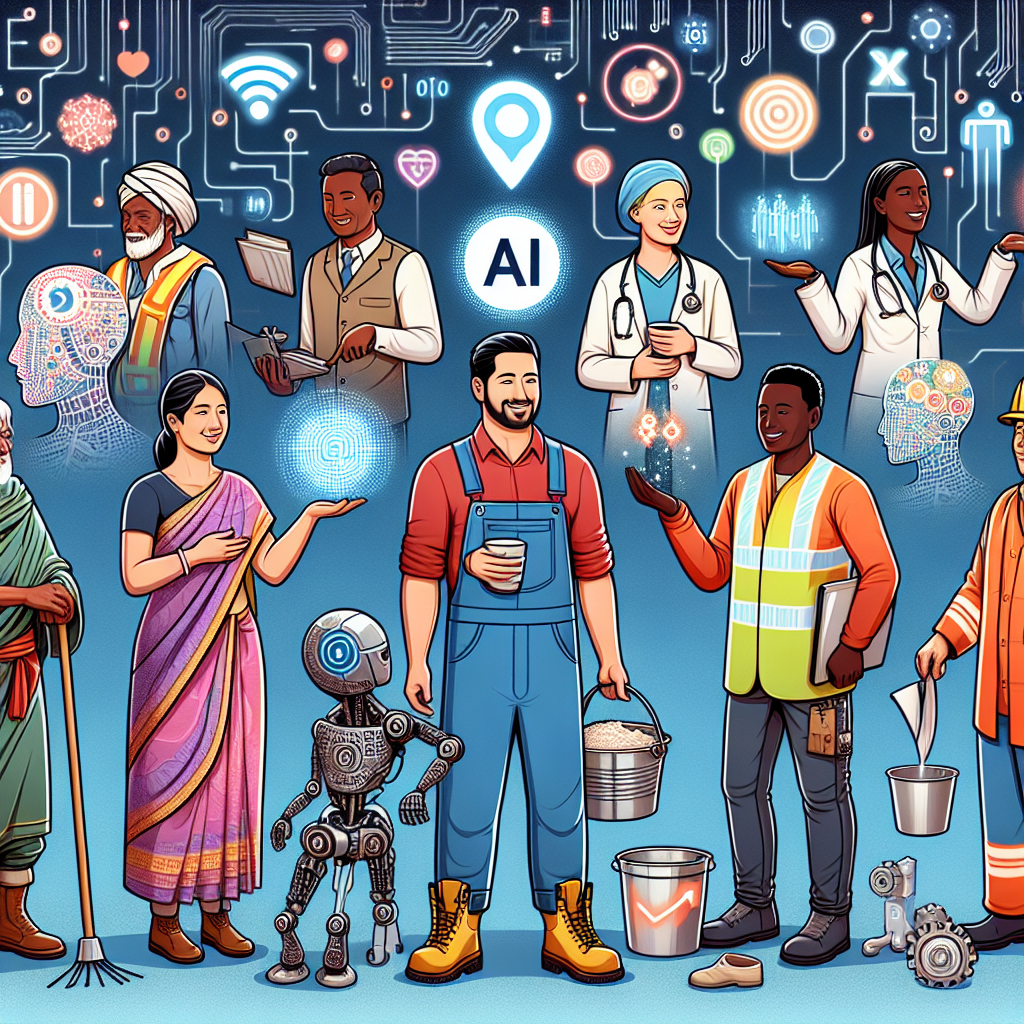The Democratization of AI: A Revolution in Tech
Artificial Intelligence (AI) has been a hot topic in the tech world for several years now, and for good reason. It has the potential to revolutionize industries, improve efficiency, and enhance human capabilities in ways we never thought possible. However, for many years, AI has been largely inaccessible to the average person or small business due to its high cost and complexity. But that is changing rapidly with the democratization of AI.
What is the democratization of AI?
The democratization of AI refers to the trend of making AI more accessible to a wider range of users, including individuals, small businesses, and non-tech-savvy professionals. This trend is driven by advancements in technology, the availability of AI tools and platforms, and the growing demand for AI solutions across different industries.
In the past, AI was primarily used by large tech companies with the resources to develop and deploy complex AI systems. These systems were expensive to build and maintain, requiring specialized knowledge and skills. However, as AI technology has advanced, it has become easier to use and more affordable for smaller businesses and individuals.
Today, there are a wide variety of AI tools and platforms available that make it easier for non-experts to develop and deploy AI solutions. These tools range from pre-built AI models and algorithms to drag-and-drop AI platforms that require little to no coding. This democratization of AI has opened up new possibilities for businesses and individuals to leverage AI in their work, regardless of their technical expertise.
How is the democratization of AI revolutionizing tech?
The democratization of AI is revolutionizing the tech industry in several ways. Firstly, it is enabling smaller businesses and individuals to harness the power of AI in ways that were previously only available to large corporations. This has leveled the playing field and allowed smaller players to compete with bigger competitors on a more equal footing.
Secondly, the democratization of AI is driving innovation by making AI more accessible to a wider range of users. This has led to the development of new AI tools and applications that cater to specific industries and use cases, such as healthcare, finance, and marketing. As a result, we are seeing a rapid expansion of AI technology into new areas and the development of innovative solutions that were not previously possible.
Additionally, the democratization of AI is empowering individuals to create their own AI solutions without the need for extensive technical knowledge. This has democratized innovation and allowed non-experts to develop AI applications that address their unique needs and challenges. As a result, we are seeing a surge in AI-powered startups and projects that are driving new ideas and advancements in the tech industry.
What are the benefits of the democratization of AI?
There are several benefits to the democratization of AI, both for businesses and individuals. One of the key benefits is increased accessibility to AI technology, which allows businesses of all sizes to leverage AI in their operations. This can lead to improved efficiency, cost savings, and better decision-making, ultimately driving business growth and competitiveness.
Another benefit of the democratization of AI is the democratization of innovation. By making AI more accessible, individuals are empowered to experiment with AI technology and develop new solutions that cater to their unique needs. This has led to a wave of creativity and innovation in the tech industry, with new AI applications and tools being developed at a rapid pace.
Additionally, the democratization of AI is driving diversity in the tech industry by enabling a wider range of users to participate in AI development. This has the potential to bring fresh perspectives and ideas to the table, leading to more inclusive and impactful AI solutions that benefit society as a whole.
FAQs:
Q: What are some examples of AI tools and platforms that are democratizing AI?
A: There are several AI tools and platforms available that are making AI more accessible to a wider range of users. Some examples include Google Cloud AI, Microsoft Azure AI, IBM Watson, and Amazon Web Services (AWS) AI. These platforms offer a variety of AI services, such as machine learning, natural language processing, and computer vision, that can be easily integrated into existing applications.
Q: How can businesses benefit from the democratization of AI?
A: Businesses can benefit from the democratization of AI in several ways. They can leverage AI technology to improve efficiency, automate repetitive tasks, and make better decisions based on data. This can lead to cost savings, increased productivity, and competitive advantage in the market. Additionally, businesses can use AI to develop new products and services that cater to changing customer needs and preferences.
Q: Is there a risk of AI becoming too democratized?
A: While the democratization of AI offers many benefits, there is also a risk of AI becoming too democratized. This could lead to a proliferation of low-quality AI solutions that do not meet industry standards or ethical guidelines. Additionally, there is a risk of bias and discrimination in AI systems if they are not developed and deployed responsibly. It is important for users to be aware of these risks and take steps to mitigate them when using AI technology.
In conclusion, the democratization of AI is a game-changer in the tech industry, opening up new possibilities for businesses and individuals to harness the power of AI in their work. This trend is driving innovation, empowering users to create their own AI solutions, and revolutionizing the way we think about technology. As AI technology continues to advance and become more accessible, we can expect to see even more exciting developments in the field of AI in the years to come.

